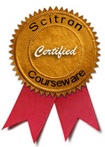( a two day Course )
Trainer : Sarah L . Gee
Anger is a universal experience. You don’t have to be a psychologist to know that managing anger productively is
something few individuals, organizations, and societies do well. Yet research tells us that those who do manage
their anger at work are much more successful than those who don’t.
The co-worker who can productively confront his teammate about his negative attitude increases his team’s
chance of success as well as minimizes destructive conflicts. The customer service agent who can defuse the
angry customer not only keeps her customers loyal but makes her own day less troublesome. This workshop is to
help give you and your organization that edge.
How you will Benefit:
- • Be better able to recognize how anger affects our bodies, our minds, and our behavior.
- • Be better able to use the six-step method to break old patterns and replace them with a model for assertive anger.
- • Be better able to control your own emotions when faced with other peoples’ anger.
- • Be better able to identify ways to help other people safely manage some of their repressed or expressed anger.
What You Will Cover:
How anger affects our bodies and our minds
Coping thoughts
Express feelings appropriately
Prevent a build-up of frustration
How to deal with issues
Staying calm
Identifying anger pay-offs
Relaxation techniques
Identifying trigger thoughts
Developing your personal sanctuary
Identifying distorted thoughts
This two‐day workshop will help teach participants how to:
- Recognize how anger affects your body, your mind, and your behavior
- Use the five‐step method to break old patterns and replace them with a model for assertive anger
- Control their emotions when faced with other peoples’ anger
- Identify ways to help other people safely manage some of their repressed or expressed anger.
Introduction and Course Overview
You will spend the first part of the day getting to know participants and discussing what will take place during
the workshop. Students will also have an opportunity to identify their personal learning objectives.
What is Anger?
What exactly is anger? How does it affect us, our family, and our friends? What are the five dimensions of
anger? We will provide a framework for you to discuss these questions with participants.
Managing Your Anger
Whether we realize it or not, people often rationalize our anger by identifying the benefits. During this session,
we will look at those “benefits” and identify the myths behind them.
The Anger Process
There are two events which lead to anger, and there are specific coping strategies that we can use to mitigate
the impact of those events. You will help participants identify those events and strategies through personal
anger logs and a case study.
How Does Anger Affect Thinking?
There are four specific ways in which anger can affect your thinking: magnifying, destructive labeling, imperative
thinking, and making assumptions about what other people are thinking.
Managing Anger
When a person begins to get angry, there are some specific verbal, physical, and mental strategies they can use
to cope. During this session, you will discuss these strategies and help participants customize them.
Communicating Better
Often people who are most angry are people who haven’t developed their communication skills to the level they
would like, and as a result they feel frustrated and misunderstood. During this session, we will discuss the fourstep
message, listening skills, questioning skills, and three keys participants can use to unlock the best in people.
Behavior Types
During this session, participants will work in small groups to discuss passive, manipulative, assertive, and
aggressive behaviors.
Taking Control
To wrap up the day, we will look at some ways to help participants take control of themselves and a situation to
prevent becoming angry.
Who Should Attend ?
This program is designed to help all levels of employees, supervisors, and managers deal with conflict
situations, and control their anger and strong emotions whether they are directly involved in the conflict or
not.


















